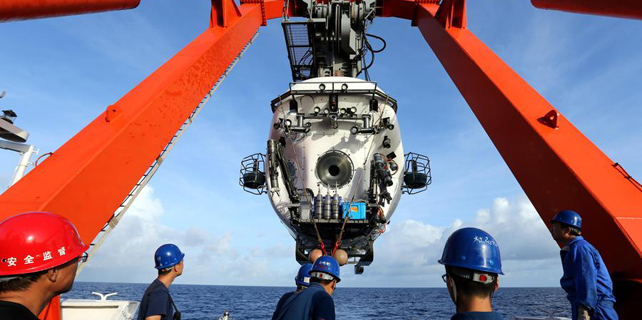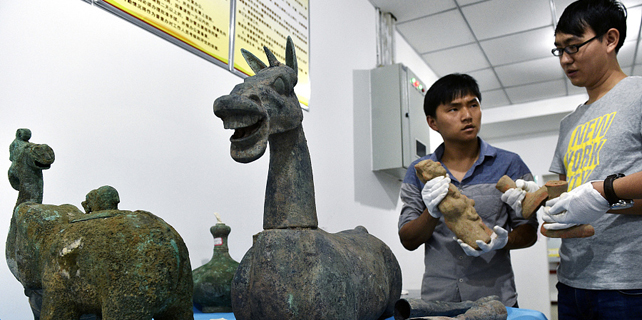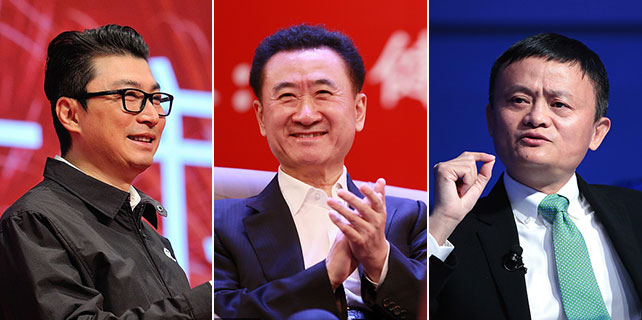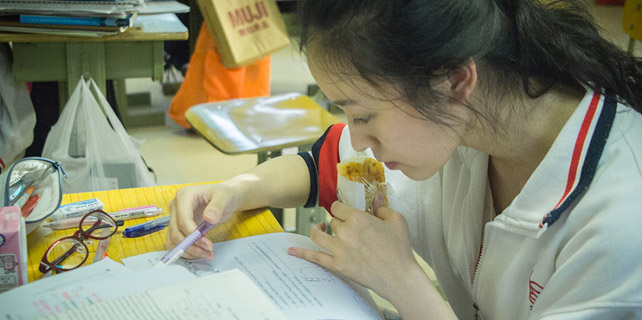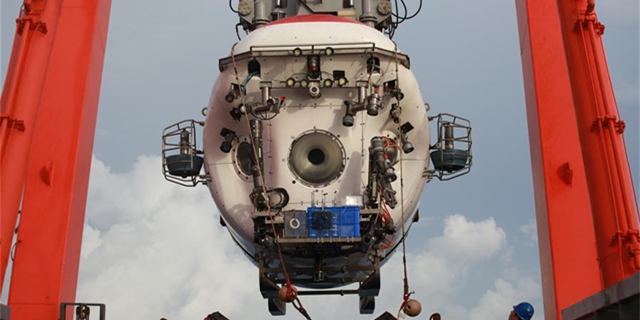AU experts undergo training in China under Huawei-sponsored program
ADDIS ABABA - Chinese tech giant Huawei on Friday sent the 3rd batch of 10 technical experts of the African Union (AU) to China for a two-week training on information and communication technology (ICT) sector.
Huawei and AU signed a Memorandum of Understanding (MoU) in January 2015 for cooperation between the two sides in the area of ICT and capacity building for the African continent.
In the implementation of the MoU, under the initiative dubbed "Seeds for the Future", Huawei has been organizing training and experience sharing visits for African experts in China, aiming also at familiarizing the experts with latest technologies in the ICT area.
The participants in the 3rd batch took part a pre-departure orientation and guidance by Huawei, AU, and the Chinese Mission to AU on Friday at the AU Headquarters in Ethiopia's capital Addis Ababa.
In his remarks on the occasion, Kwesi Quartey, Deputy Chairperson of the AU Commission, hailed China's rise and development as "very, very impressive, incredible," which he said is best example for Africa.
The Deputy Chairperson, who recently visited China and attended the Belt and Road Forum, noted that China has dynamic, flexible leadership that shows Africa the way through inclusive education as foundation and its application of science and technology.
Quartey commended Huawei for its support by providing the training for African ICT experts on the topics very relevant for Africa.
He also urged the participants to use the opportunity to acquire the knowledge to effectively implement the African projects.
"Education, training, science and technology is key for Africa especially as we focus on the theme of harnessing the demographic dividend of the youth through investments. The skills and know-how transfer is key," he stated.
Cheng Ning, Counselor of Cooperation and Exchange at the Chinese Mission to AU, said that the training helps Africa's effort to develop capacity in the ICT sector.
Stating that the training is organized in collaboration and partnership with Huawei, Chen said it is in line with China's commitment to supporting Africa to realize sustainable development under the 10 major cooperation plans between China and Africa.
Besides Huawei's program, he said that China has been providing capacity building support to Africa, through various short and long-term training programs in China.
Stating that China has also been providing support to various social activities in Africa, Chen said China will continue supporting capacity building efforts on the continent.
He called for the participants to explore China during their stay in the country for the training.
Speaking on the occasion, Deputy CEO of Huawei Ethiopia, Adam Ma, reiterated that the training is organized to support AU's effort in the ICT area.
With 18 years of experience within Africa's ICT industry coupled with extensive industry global network, Huawei is well positioned to partner with the African Union and share its experience, noted the Deputy CEO.
Two AU staff members, who have participated in the Huawei's program with previous batches, namely Yagouba Traore and Martha Yetayew shared their experiences during the training.
Huawei and AU signed a Memorandum of Understanding (MoU) in January 2015 for cooperation between the two sides in the area of ICT and capacity building for the African continent.
In the implementation of the MoU, under the initiative dubbed "Seeds for the Future", Huawei has been organizing training and experience sharing visits for African experts in China, aiming also at familiarizing the experts with latest technologies in the ICT area.
The participants in the 3rd batch took part a pre-departure orientation and guidance by Huawei, AU, and the Chinese Mission to AU on Friday at the AU Headquarters in Ethiopia's capital Addis Ababa.
In his remarks on the occasion, Kwesi Quartey, Deputy Chairperson of the AU Commission, hailed China's rise and development as "very, very impressive, incredible," which he said is best example for Africa.
The Deputy Chairperson, who recently visited China and attended the Belt and Road Forum, noted that China has dynamic, flexible leadership that shows Africa the way through inclusive education as foundation and its application of science and technology.
Quartey commended Huawei for its support by providing the training for African ICT experts on the topics very relevant for Africa.
He also urged the participants to use the opportunity to acquire the knowledge to effectively implement the African projects.
"Education, training, science and technology is key for Africa especially as we focus on the theme of harnessing the demographic dividend of the youth through investments. The skills and know-how transfer is key," he stated.
Cheng Ning, Counselor of Cooperation and Exchange at the Chinese Mission to AU, said that the training helps Africa's effort to develop capacity in the ICT sector.
Stating that the training is organized in collaboration and partnership with Huawei, Chen said it is in line with China's commitment to supporting Africa to realize sustainable development under the 10 major cooperation plans between China and Africa.
Besides Huawei's program, he said that China has been providing capacity building support to Africa, through various short and long-term training programs in China.
Stating that China has also been providing support to various social activities in Africa, Chen said China will continue supporting capacity building efforts on the continent.
He called for the participants to explore China during their stay in the country for the training.
Speaking on the occasion, Deputy CEO of Huawei Ethiopia, Adam Ma, reiterated that the training is organized to support AU's effort in the ICT area.
With 18 years of experience within Africa's ICT industry coupled with extensive industry global network, Huawei is well positioned to partner with the African Union and share its experience, noted the Deputy CEO.
Two AU staff members, who have participated in the Huawei's program with previous batches, namely Yagouba Traore and Martha Yetayew shared their experiences during the training.
Related Stories







